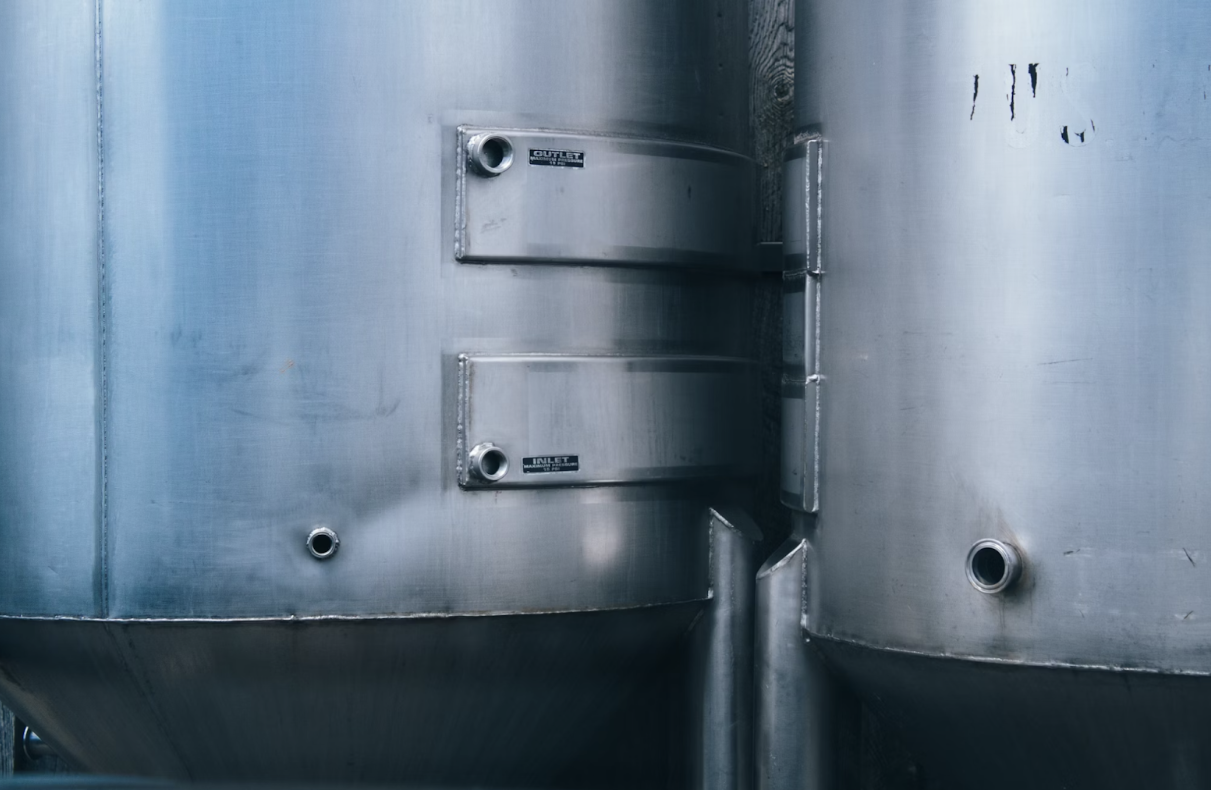Stainless Steel Tanks: The Hygienic Heroes of the Pharmaceutical Industry
In the pharmaceutical industry, where the cleanliness and purity of products are not just paramount but a stringent necessity, stainless steel tanks stand as stalwart guardians of health and hygiene.
With their gleaming surfaces and robust designs, these pharmaceutical tanks play a pivotal role in ensuring that the medications and health supplements we rely on daily are produced in environments that surpass the highest standards of cleanliness and contamination control.
Key Points
Stainless steel tanks are essential in keeping pharmaceutical products clean and pure. Their smooth surfaces stop bacteria from sticking.
These tanks last a long time and don't rust easily, making them a smart choice for making medical products. They keep the quality of these products consistent.
They can be customized for specific needs. This means they can be adjusted to control temperature and pressure perfectly for different medicines.
Stainless steel tanks are also good for the environment. They can be recycled, use less energy to clean, and fit with eco-friendly manufacturing practices.
These tanks help ensure the safety and quality of medicines. They prevent contamination and allow for close monitoring, which is important for public health.
Unparalleled Hygiene and Cleanliness
The intrinsic properties of stainless steel make it the material of choice for pharmaceutical manufacturing.
Notably, its exceptionally smooth surface prevents the accumulation of bacteria and other contaminants, making it an ideal candidate for the stringent cleanliness requirements of the pharmaceutical industry.
This non-porous nature ensures that cleaning and sterilization processes are highly effective, leaving no place for microbes to hide or multiply.
Stainless steel tanks are engineered to withstand aggressive cleaning agents and high-temperature sterilization methods, ensuring that they can be returned to a pristine condition after each batch of production, thus maintaining the integrity of the pharmaceutical products.
Moreover, the corrosion-resistant nature of stainless steel enhances the longevity of these tanks, making them a cost-effective solution for pharmaceutical manufacturing.
Unlike other materials that might degrade or leach contaminants into products over time, stainless steel stands the test of time and use.
This durability ensures that the tanks remain inert, imparting no unwanted flavors, odors, or colors to the products they contain.
The outcome is a consistently pure product, batch after batch, which is crucial for patient safety and efficacy of pharmaceuticals.
Versatility and Customization for Various Applications
Stainless steel tanks are not a one-size-fits-all solution; their versatility is another feather in their cap.
Whether it’s for mixing, storing, or fermenting pharmaceutical products, these tanks can be customized to meet the specific needs of each application.
They come in various sizes, from small laboratory-scale vessels to massive tanks capable of holding thousands of liters, ensuring scalability and flexibility in pharmaceutical manufacturing processes.
With options for jacketing, insulation, and agitation, stainless steel tanks can maintain precise temperature controls, which is vital for many pharmaceutical processes.
Their adaptability extends beyond size and features. Stainless steel tanks can be designed to operate under different pressures and temperatures, catering to the unique requirements of various pharmaceutical products.
For example, some products may require high-pressure environments for effective synthesis, while others might need low-temperature conditions for preservation.
Customizing these tanks to specific operational parameters allows pharmaceutical manufacturers to optimize their processes, enhancing efficiency and product quality.
Environmental Responsibility and Sustainability
In today’s eco-conscious world, the pharmaceutical industry's environmental impact is under scrutiny more than ever.
Stainless steel tanks contribute positively to this aspect, being 100% recyclable without a loss in quality.
The majority of new stainless steel comes from old remelted stainless steel, including tanks that have reached the end of their useful lifespan, contributing to a circular economy.
This sustainability aspect is crucial for pharmaceutical companies looking to minimize their environmental footprint and adhere to green manufacturing principles.
Furthermore, the energy required to clean and sterilize stainless steel tanks is considerably lower compared to other materials.
Their resistance to corrosion and damage means fewer resources are needed for maintenance and replacement, further reducing the environmental impact.
As the pharmaceutical industry continues to grow, the importance of adopting sustainable practices increases. Here, stainless steel tanks offer a solution that not only meets the current demands for hygiene and efficiency but also aligns with the global shift toward sustainability.
Enhancing Quality Control and Assurance
Quality control and assurance are non-negotiables in the pharmaceutical industry. With health and lives at stake, there's no room for error.
Stainless steel tanks contribute significantly to these critical processes through their inherent characteristics. Their resistance to chemical and physical degradation ensures that the products within are protected from contamination.
This is crucial for maintaining the high-quality standards required for pharmaceutical products, ensuring that each dose is safe and effective for the end user.
Additionally, the ability to design and fabricate stainless steel tanks with various monitoring and control gadgets further bolsters the quality control process.
Sensors and instruments for measuring temperature, pH levels, and other critical parameters can be easily integrated.
This allows for real-time monitoring and adjustments during production, ensuring that each batch meets the strict quality criteria set forth by regulatory bodies and manufacturers alike, thereby safeguarding public health and upholding the industry's reputation.
Conclusion
Stainless steel tanks are indeed the hygienic heroes of the pharmaceutical industry. Their role in ensuring pharmaceutical products' cleanliness, safety, and quality cannot be overstated.
As technology evolves and the demand for pharmaceuticals increases globally, the reliance on these versatile, durable, and sustainable tanks is set to grow.
They embody the industry's commitment to health and safety and its adaptation to environmental concerns and sustainability goals.
As we move forward, the importance of stainless steel tanks in the pharmaceutical manufacturing sector will only become more pronounced, continuing to safeguard our health in an ever-changing world.









